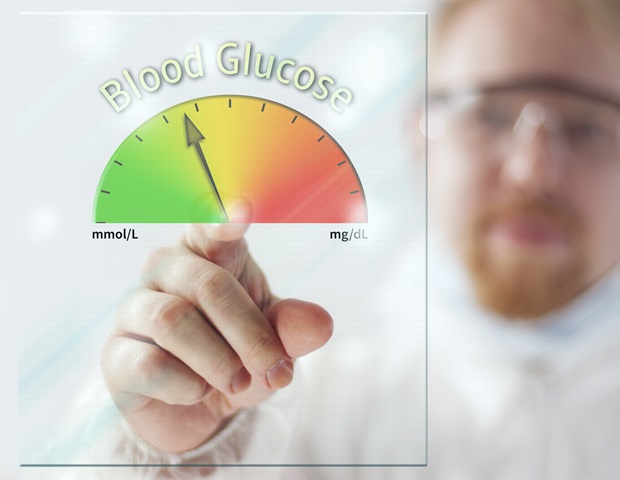Health
Poor Blood Sugar Control in Teens Raises Neuropathy Risk Later

Research led by the University of Michigan reveals that adolescents with poor glycemic control are at a heightened risk of developing neuropathy in adulthood. The study, which tracked participants for over 30 years, underscores the challenges faced by young individuals diagnosed with type 1 diabetes in managing their blood sugar levels effectively.
The findings indicate that children diagnosed with type 1 diabetes before the age of six often struggle to maintain optimal blood glucose levels during their teenage years. Specifically, those exhibiting higher-than-average blood sugar levels, referred to as poor glycemic control, are more likely to experience nerve damage later in life. Neuropathy, a condition characterized by pain, numbness, and tingling in the extremities, affects up to 50% of the nearly 40 million Americans living with diabetes.
Research results are published in the journal Diabetes Research and Clinical Practice. The study highlights the necessity of providing support to teenagers with type 1 diabetes to help them effectively manage their condition and facilitate a smoother transition to adult care.
Longitudinal Study Overview
The research involved nearly 2,000 participants who had their HbA1c (blood sugar) readings monitored over three decades. During adolescence, participants recorded an average HbA1c level of 8.9%, which is significantly higher than their readings during childhood and adulthood. This elevated level of blood sugar is associated with the likelihood of long-term complications.
The study’s co-senior author, Eva Feldman, M.D., Ph.D., who is also the director of the ALS Center of Excellence at U-M Health, explains that participants who showed the most significant increase in HbA1c levels from childhood to adolescence not only maintained elevated blood sugar levels into adulthood but also faced an increased risk of developing neuropathy.
“Our findings suggest that difficulties maintaining blood sugar in adolescence may lead to greater challenges in achieving future glycemic control,” Feldman stated. She noted that while the exact mechanisms linking adolescent hyperglycemia to later complications remain unclear, factors such as impairments in cell metabolism, insulin signaling, and glucose regulation could contribute to long-term issues.
Additional Risk Factors and Expert Insights
While the study establishes a connection between adolescent hyperglycemia and future neuropathy, Kara Mizokami-Stout, M.D., M.Sc., an assistant professor specializing in metabolism, endocrinology, and diabetes at U-M Medical School, adds that additional vascular risk factors are also critical in the development of neuropathy. Mizokami-Stout, who was not involved in the study, emphasizes the importance of maximizing support for younger individuals living with diabetes.
The research highlights the urgent need for caregivers and healthcare providers to prioritize effective blood sugar management strategies for adolescents diagnosed with type 1 diabetes. This proactive approach could significantly reduce the risk of painful complications in their adult lives.
As the prevalence of diabetes continues to rise, studies like this underscore the importance of addressing the long-term health needs of young patients and ensuring they receive the guidance necessary to manage their condition effectively.
The findings of this study serve as a call to action for both families and healthcare professionals to work collaboratively in supporting adolescents with type 1 diabetes, ultimately aiming to minimize the risk of debilitating complications such as neuropathy in adulthood.
-

 Health3 months ago
Health3 months agoNeurologist Warns Excessive Use of Supplements Can Harm Brain
-

 Health3 months ago
Health3 months agoFiona Phillips’ Husband Shares Heartfelt Update on Her Alzheimer’s Journey
-

 Science1 month ago
Science1 month agoBrian Cox Addresses Claims of Alien Probe in 3I/ATLAS Discovery
-

 Science1 month ago
Science1 month agoNASA Investigates Unusual Comet 3I/ATLAS; New Findings Emerge
-

 Science4 weeks ago
Science4 weeks agoScientists Examine 3I/ATLAS: Alien Artifact or Cosmic Oddity?
-

 Entertainment4 months ago
Entertainment4 months agoKerry Katona Discusses Future Baby Plans and Brian McFadden’s Wedding
-

 Science4 weeks ago
Science4 weeks agoNASA Investigates Speedy Object 3I/ATLAS, Sparking Speculation
-

 Entertainment4 months ago
Entertainment4 months agoEmmerdale Faces Tension as Dylan and April’s Lives Hang in the Balance
-

 World3 months ago
World3 months agoCole Palmer’s Cryptic Message to Kobbie Mainoo Following Loan Talks
-

 Science4 weeks ago
Science4 weeks agoNASA Scientists Explore Origins of 3I/ATLAS, a Fast-Moving Visitor
-

 Entertainment4 months ago
Entertainment4 months agoLove Island Star Toni Laite’s Mother Expresses Disappointment Over Coupling Decision
-

 Entertainment3 months ago
Entertainment3 months agoMajor Cast Changes at Coronation Street: Exits and Returns in 2025









